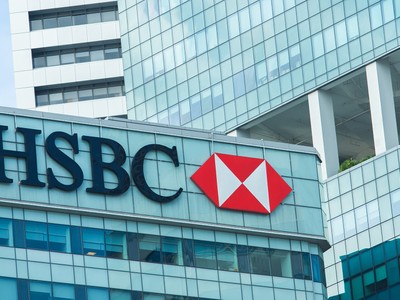CARILLION
PRICE: £2.49
52 WEEK HIGH-LOW: £3.20–£1.96 NET YIELD: 7.45%
HIST/PROS PER: 7.3–7.2
EQUITY MARKET CAP: £1,060m
INDUSTRIALS
Richard Howson (CEO), Richard Adam (CFO), John Denning (Director of Corporate Affairs)
Carillion has got a high dividend yield of 7.4%, but the trouble with high yielding equities is that they are often suddenly not: when the dividend gets cut. So we looked to the management team for guidance on the business prospects of Carillion to help us take a view on the dividend. Carillion has two main divisions: Construction (32% of revenues) and Support Services (60%).
Hedge funds have shorted Carillion shares but CEO, Richard Howson says that when some of the hedge funds combine the pension fund deficit with long term debt, they become worried about leverage. With pension fund trustees required to take into account the health of the supporting company, Howson argues that they are misplaced to simply add the two liabilities together.
Carillion has a preference for large scale contracts allowing them to employ top quality managers who are less likely to cause problems, like the ones that Mitie and Balfour Beatty had. Howson suggests that we are currently 20% into the biggest infrastructure boom that he has seen in his lifetime and he’s looking for fiscal stimulus aimed at infrastructure and cited a number of projects which could benefit. Howson also indicated that support services’ order book looks in good shape. CFO Richard Adam said that margin should be preserved and he appeared to be happy with Carillion’s diversified debt providers and the maturity profile.
Running a high yield equity portfolio is always a difficult compromise; I think Carillion’s business appears sufficiently strong for it to maintain the dividend although there is always the risk that the incoming CFO, Zafar Khan might use his arrival as the catalyst for a cut.
DIXONS CARPHONE
PRICE: £3.32
52 WEEK HIGH-LOW: £5.07–£2.42 NET YIELD: 2.97%
HIST/PROS PER: 21.1–10.7 EQUITY MARKET CAP: £3,781m
CONSUMER SERVICES
Kate Ferry (IR, PR and Corporate Affairs Director) and Mark Reynolds (IR)
We have probably all bought something from Dixons Carphone at some stage, so you probably feel fairly familiar with the company.
Kate Ferry started talking about the bits that you probably don’t know about; like the 34% of ex UK sales that mostly come from their successful Nordic stores. She then moved on to the mobile phone market (33% of sales) stating that structural tailwinds exist for mobile phones, as the need for both more data and larger phone capacity grows exponentially. In addition, the split of higher margin contract vs. prepay has increased to 60% vs 40%.
OFCOM probably likes Dixons Carphone because it gives price sensitive customers an easy comparison. As do the networks (Vodafone, O2, EE, Three) because it enables the networks to run promotions via Dixons Carphone without cannibalising their direct sales.
The non-mobile (white goods, PCs, TVs etc.) market is now less crowded following Comet’s bankruptcy in 2012. They face John Lewis who cater to the more affluent segment and Argos, who Kate says are not as competitive on price. If Dixons, rather than similarly priced Amazon, can win over price-sensitive customers who by default go to Argos, they stand to grow market share.
Growth prospects include selling maintenance contracts on white goods such as dishwashers, and a joint venture with Sprint so that they will open and operate up to 500 new Sprint stores across the US.
When questioned about the resilience of the company to a global slowdown and a 10% drop in sales, Kate said that this would take £40 million off their c. £270 million Net Income. With a strong balance sheet this should not be a problem.
JD SPORTS
PRICE: £3.19
52 WEEK HIGH-LOW: £3.40–£1.90 NET YIELD: 0.46%
HIST/PROS PER: 26.1–21.0 EQUITY MARKET CAP: £3,164m
CONSUMER GOODS
Brian Small (CFO)
JD Sports (JD) retails sports fashion and outdoor clothing with sport fashion being 92% of the business. The other 8% is outdoor shops, such as Millets and Blacks.
JD is a great retailer; it chooses the right stores in the right locations and gets the right merchandise on the right shelves. JD has strong relationships with brands such as Adidas and Nike and the brands love JD because JD sells apparel, in addition to the latest trainers. If you buy a new pair of trainers, the chances are that you buy a new branded shirt too; but only in a JD shop with the broad range. The brands reward JD with exclusive distribution rights and product launches, which in turn means JD does not have to discount as much as others – so margins remain high.
Brian Small said that branded items evoke an emotional response which means less price sensitivity when compared to a functional purchase, which translates into impressive 15% average revenue growth over the past decade.
Growth is likely to get powered from JD expanding its format into Europe, Malaysia and Australia and other geographies. They see 5% organic growth driven by UK stores increasing in number, size and from even better merchandising driving higher turnover. They now sell North Face as a fashion item out of JD (rather than just out of Millets and Blacks as functional clothing) and taking North Face from a functional to an emotional fashion item has positive margin connotations.
With strong economies of scale there could be scope to raise the margin by bringing Europe up to the UK’s level of operational efficiency. Risks include execution in Europe and Sports Direct rebuilding its relationships with the brands and taking back some of JD’s exclusive promotions.
We met the companies below and you can learn more on any of these by contacting the person at JM Finn & Co with whom you usually deal.
BASIC MATERIALS
Croda, Elementis
CONSUMER GOODS
AB Foods, Berkeley Group, BooHoo.com, Burberry, Diageo, JD Sports, Safestore, Unilever
CONSUMER SERVICESDixons Carphone, Enterprise Inns, Marstons, Merlin Entertainments, RELX, Saga, Sky, St Ives, Tesco, Whitbread
FINANCIALS
Barclays, Big Yellow Group, British Land Company, Lloyds Banking Group, London Metric, Provident Financial, Prudential, SEGRO, Unite Group
HEALTHCAREConvaTec, Dechra Pharmaceuticals, Genus, GlaxoSmithKline, NMC Health
INDUSTRIALSAA, Berendsen, Bunzl, Carillion, DCC, Equiniti, Experian, Halma, Hill and Smith, Intertek, Ricardo, Rotork, Travis Perkins
OIL & GASGuiness Global Energy Fund, Hunting
TELECOMMUNCATIONSServelec, Immarsat
UTILITESPennon, Severn Trent, SSE



